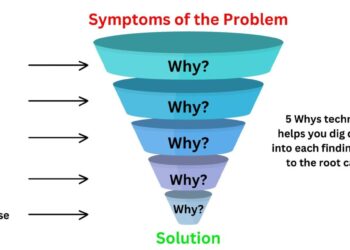Financial Habits To Master Before 30 are crucial for setting the foundation for a stable and prosperous future. In today’s fast-paced economy, understanding financial literacy is more important than ever, especially for young adults navigating their financial journeys. By mastering essential habits like budgeting, saving, investing, and managing debt, individuals can significantly enhance their financial well-being and ensure they are well-prepared for the challenges that lie ahead.
From grasping the key concepts of financial literacy to developing effective budgeting techniques, this guide aims to equip you with the knowledge and skills necessary to thrive financially before hitting the big three-oh. We’ll also explore various investment strategies and the importance of building credit, all aimed at helping you become financially savvy and independent.
Understanding Financial Literacy

Financial literacy is a crucial skill set for navigating today’s complex economic landscape. With rising living costs, student debt, and a rapidly changing job market, being financially literate empowers young adults to make informed decisions that can significantly impact their long-term financial well-being. This knowledge not only fosters personal responsibility but also helps individuals to plan for their future needs, creating a foundation for financial independence.
Key concepts of financial literacy encompass various aspects of managing money effectively. Understanding these concepts is vital for young adults as they enter the workforce and begin to manage their own finances. The foundational elements include budgeting, saving, investing, understanding credit, and managing debt. Grasping these principles allows individuals to avoid common financial pitfalls and build a stable financial future.
Key Concepts of Financial Literacy
A sound understanding of financial literacy involves several key concepts that young adults should prioritize. Familiarity with these elements can lead to better financial decisions and increased financial security.
- Budgeting: Creating a budget helps track income and expenses, allowing individuals to allocate funds wisely and avoid overspending.
- Saving: Establishing an emergency fund and saving for short-term and long-term goals is essential for financial stability.
- Investing: Knowing the basics of investing, including stocks, bonds, and mutual funds, enables individuals to grow their wealth over time.
- Understanding Credit: Comprehending how credit works, including credit scores and reports, is vital for making informed borrowing decisions.
- Debt Management: Learning to manage existing debt, including understanding interest rates and repayment strategies, is crucial for maintaining financial health.
To enhance financial knowledge and skills, various resources are available. Educational platforms, workshops, and books can provide valuable insights into personal finance.
Resources for Improving Financial Knowledge
Engaging with financial education resources can significantly enhance one’s financial literacy. Various platforms and tools are specifically designed to help individuals learn at their own pace.
- Online Courses: Websites like Coursera, Khan Academy, and edX offer comprehensive courses on personal finance topics.
- Books: Titles such as “The Total Money Makeover” by Dave Ramsey and “Rich Dad Poor Dad” by Robert Kiyosaki provide practical advice and insights into financial success.
- Podcasts: Financial podcasts like “The Dave Ramsey Show” and “So Money” discuss personal finance strategies and share expert interviews.
- Local Workshops: Many community organizations offer free workshops on budgeting, saving, and investing, providing hands-on learning experiences.
- Financial Apps: Apps like Mint and YNAB (You Need A Budget) help users manage their budgeting and track expenses effectively.
Equipping oneself with financial literacy is an ongoing journey that can profoundly affect one’s quality of life. By focusing on these essential concepts and utilizing available resources, young adults can build a solid financial foundation for their future.
Budgeting Techniques
Budgeting is an essential financial habit that can significantly enhance your money management skills. For individuals under 30, mastering effective budgeting techniques can set the foundation for a secure financial future. By understanding various budgeting methods and utilizing helpful tools, you can take control of your finances and make informed decisions.
There are several budgeting methods that cater to diverse financial needs and lifestyles. Below are some popular techniques that work well for those under 30:
Popular Budgeting Methods
Choosing the right budgeting method can make a difference in how effectively you manage your finances. Here are some methods that are particularly suitable for young adults:
- The 50/30/20 Rule: This method suggests allocating 50% of your income to needs (housing, food), 30% to wants (entertainment, travel), and 20% to savings and debt repayment. It’s a simple framework that helps maintain a balanced financial life.
- Zero-Based Budgeting: Under this approach, every dollar earned is assigned a specific role, whether it’s for expenses, savings, or debt repayment. The goal is to end each month with a zero balance, which enforces a strict control over spending.
- Envelope System: This traditional method involves allocating cash into envelopes designated for different spending categories. Once the cash in an envelope is gone, you can’t spend any more in that category, which encourages discipline.
- Pay Yourself First: This strategy emphasizes saving before spending. Allocate a portion of your income to savings or investments and then use the remaining amount for expenses and discretionary spending.
Implementing a personal budget can be straightforward and manageable with a clear step-by-step approach. Here’s how to create your budget:
Step-by-Step Guide to Developing a Personal Budget, Financial Habits To Master Before 30
Creating a personal budget requires careful consideration of your income, expenses, and financial goals. Follow these steps to establish a practical budget:
- Determine Your Income: Calculate your total monthly income, including wages, bonuses, freelance work, and any other sources.
- Track Your Expenses: Monitor your spending for a month to understand where your money goes. Categorize your expenses into fixed (rent, subscriptions) and variable (food, entertainment).
- Set Financial Goals: Identify your short-term and long-term financial goals, such as saving for a vacation or paying off debt.
- Create Your Budget: Using the information gathered, allocate your income according to your chosen budgeting method. Ensure that your expenses do not exceed your income.
- Monitor and Adjust: Review your budget regularly and adjust as necessary to accommodate changes in income or expenses.
Using budgeting tools can simplify the process of tracking and managing your finances. Here are some popular budgeting apps that can assist you:
Budgeting Tools and Apps
Many budgeting tools and apps can help you stay on track with your finances. These applications offer features that aid in expense tracking, budget creation, and financial goal setting:
- Mint: This free app allows users to connect their bank accounts and automatically track spending. It also provides a holistic view of your finances and budget recommendations.
- You Need a Budget (YNAB): YNAB is a subscription-based app that focuses on proactive budgeting. It teaches users to allocate every dollar and helps with financial goal setting.
- GoodBudget: A digital envelope budgeting app that helps you manage your finances through a virtual envelope system. It allows tracking of spending and savings goals.
- Personal Capital: This app is great for budgeting and investment tracking, offering tools to visualize your financial health and plan for retirement.
Understanding and implementing these budgeting techniques can empower you to make informed financial choices and cultivate strong financial habits as you navigate your twenties.
Saving and Investing Strategies

Starting to save early can have a significant impact on your financial future. The earlier you begin setting aside money, the more time your savings have to grow through compound interest. This principle is fundamental in wealth building and can help you achieve your financial goals sooner than you might expect. Understanding various saving and investing options will allow you to tailor a strategy that fits your lifestyle and long-term aspirations.
Understanding the importance of saving and investing is crucial for young adults looking to secure their financial futures. By putting money aside early and taking advantage of investment opportunities, you can create a solid foundation for wealth accumulation. Below are several investment options available for young adults, each with their unique advantages and considerations.
Investment Options for Young Adults
Young adults have a variety of investment options to consider, each catering to different risk tolerances and time horizons. Here are some common choices:
- Stocks: Investing in individual stocks allows you to own a piece of a company. Historical data shows that stocks have delivered higher returns over the long term compared to other asset classes.
- Bonds: Bonds are generally considered safer than stocks. They provide fixed interest payments and are a good option for risk-averse investors.
- Mutual Funds: These funds pool money from many investors to purchase a diversified portfolio of stocks and/or bonds, making them a good choice for those who prefer a hands-off approach.
- Exchange-Traded Funds (ETFs): Similar to mutual funds, ETFs are traded on stock exchanges and typically have lower fees, providing diversification with greater flexibility.
- Real Estate: Investing in real estate can be an excellent way to build wealth, allowing you to generate rental income and benefit from property value appreciation.
- Robo-Advisors: These platforms offer automated investment management services, making it easier for young investors to start investing with minimal fees.
Establishing a savings plan that incorporates both short-term and long-term financial goals is essential for successful financial management. A well-structured savings plan encourages disciplined saving and provides a roadmap for reaching your objectives.
Savings Plan Design
Creating a savings plan involves identifying your financial goals and determining how much you need to save regularly. Here’s a structured approach to designing an effective savings plan:
1. Identify Short-Term Goals: These could include saving for a vacation, a new gadget, or an emergency fund. Set specific amounts and timelines for these goals.
Example: Aim to save $1,200 for a vacation in 12 months, which requires saving $100 each month.
2. Identify Long-Term Goals: These goals might include saving for retirement, a home down payment, or education expenses. They typically require larger sums and longer timeframes.
Example: If you want to save $50,000 for a down payment in 5 years, you would need to save $833.33 each month.
3. Determine Savings Methods: Establish where you will keep your savings. Consider options like high-yield savings accounts, dedicated savings accounts for specific goals, or investment accounts for longer-term growth.
4. Monitor and Adjust: Regularly review your savings plan to ensure you’re on track. Adjust contributions as needed based on changes in income or expenses.
5. Automate Savings: Set up automatic transfers to your savings account to ensure you consistently save each month without having to think about it.
This structured approach to saving, combined with strategic investing, will help set the foundation for a secure financial future.
Building Credit and Managing Debt: Financial Habits To Master Before 30
Establishing a solid foundation in credit management and understanding debt is crucial for young professionals. Mastering these aspects not only enhances financial health but also opens doors to opportunities like loans and mortgages. A proactive approach to managing credit and debt can lead to long-term financial stability and success.
Factors Contributing to a Good Credit Score
A good credit score is essential for securing favorable loan terms, renting apartments, and even gaining employment in some sectors. Several factors contribute to a strong credit score, which typically ranges from 300 to 850.
- Payment History: Making timely payments on bills and loans is the most significant factor. Consistent on-time payments can boost your score.
- Credit Utilization Ratio: This represents the amount of credit you are using compared to your total available credit. Keeping this ratio below 30% is advisable.
- Length of Credit History: A longer credit history can positively affect your score, as it indicates experience in handling credit.
- Types of Credit: Having a mix of credit types, such as installment loans and revolving credit, can enhance your score.
- Recent Credit Inquiries: Too many hard inquiries in a short time can negatively impact your score. It’s important to space out applications for new credit.
Debt Management Strategies for Young Professionals
Managing debt effectively is vital to avoid financial strain and stress. Several strategies can help young professionals stay on top of their debt.
- The Snowball Method: This involves paying off the smallest debts first while making minimum payments on larger debts. It can build momentum as you celebrate small victories.
- The Avalanche Method: Here, you focus on paying off debts with the highest interest rates first, saving money on interest in the long run.
- Debt Consolidation: Combining multiple debts into a single loan with a lower interest rate can simplify payments and reduce overall costs.
- Negotiate with Creditors: In some cases, you can negotiate to lower your interest rates or set up a payment plan that fits your budget.
- Budgeting: Establishing a detailed budget helps to prioritize debt repayment while managing living expenses.
Understanding Credit Reports
Reading and interpreting credit reports is essential for monitoring your financial health. A credit report contains detailed information about your credit history, and knowing how to read it can empower you to manage your credit effectively.
- Personal Information: This section includes your name, address, social security number, and employment details. Ensure all information is accurate.
- Account Information: This lists your credit accounts, including credit cards, mortgages, and loans, along with payment history and current status.
- Credit Inquiries: Hard inquiries occur when you apply for new credit, while soft inquiries are for background checks. Understanding these can help manage your score.
- Public Records and Collections: This section may include bankruptcies, foreclosures, and any accounts sent to collections. It’s critical to resolve any inaccuracies here.
- Credit Score: While many reports include your score, they won’t explain how it’s calculated; refer to the factors above for insight.
Regularly checking your credit report can help you catch errors early and maintain a healthy credit score.
Final Conclusion
In conclusion, mastering Financial Habits To Master Before 30 is not just about managing your money; it’s about creating opportunities for your future. By adopting sound financial practices early on, you empower yourself to make informed decisions that will lead to greater financial security and wealth accumulation over time. Don’t underestimate the power of good habits—start today, and watch your financial confidence grow.
Expert Answers
Why is financial literacy important?
Financial literacy equips individuals with the knowledge to make informed financial decisions, leading to better financial stability and success.
What budgeting techniques should I use?
Some effective budgeting techniques include the 50/30/20 rule, zero-based budgeting, and using budgeting apps to track your expenses.
How can I start saving early?
Begin by setting up a savings account, automating your savings, and consistently allocating a portion of your income to savings each month.
What is a good credit score?
A good credit score typically ranges from 700 to 749, which demonstrates responsible credit use and positively impacts your borrowing ability.
How do I manage debt effectively?
Effective debt management strategies include creating a repayment plan, prioritizing high-interest debt, and considering debt consolidation options.










